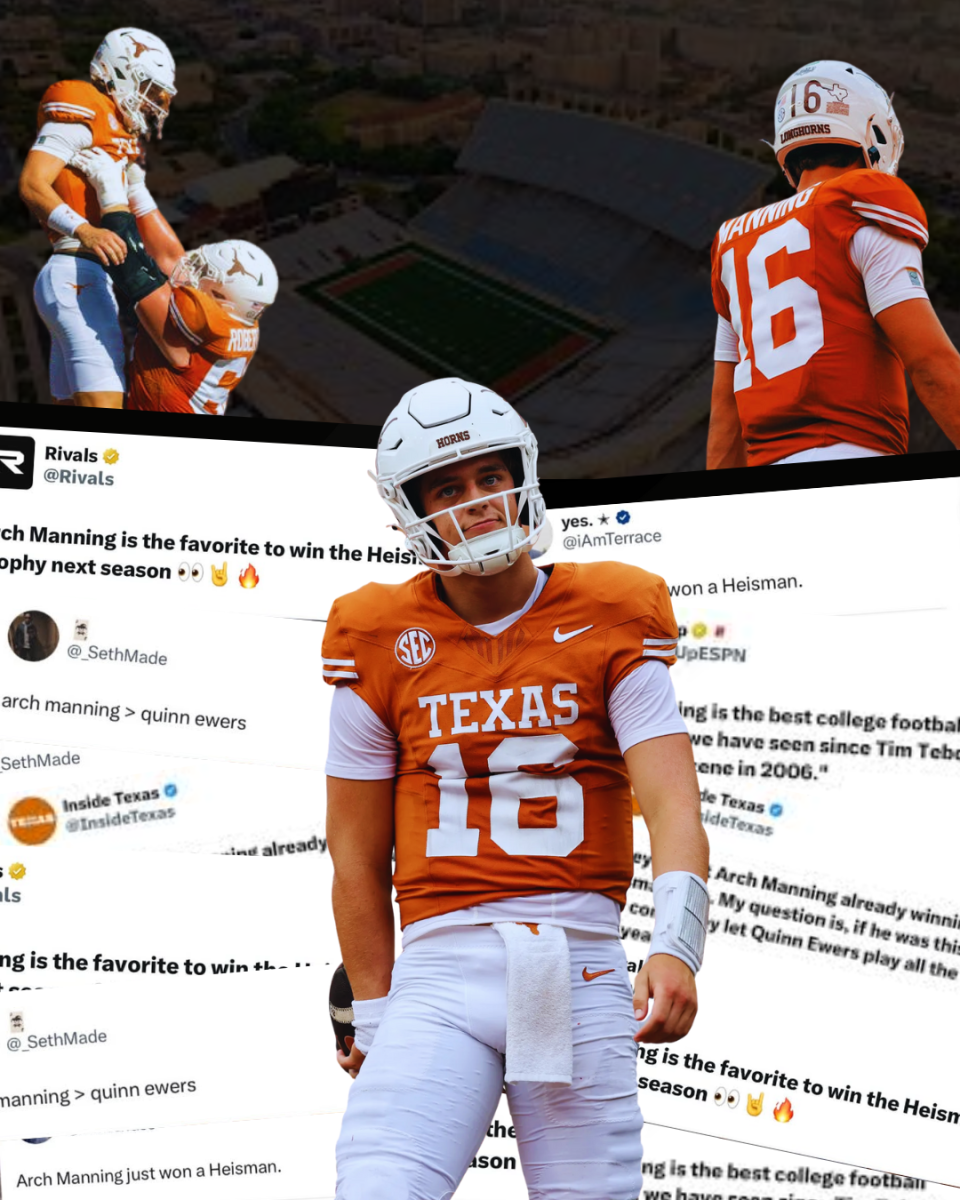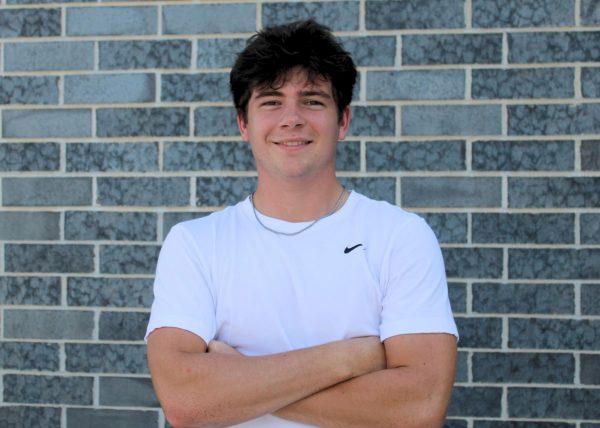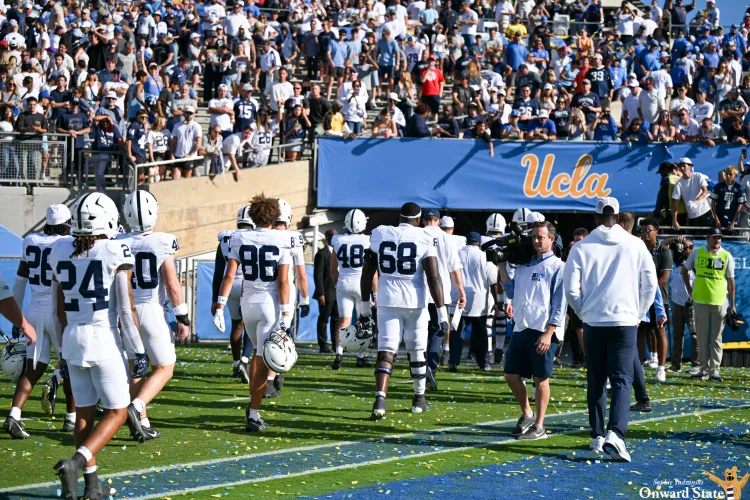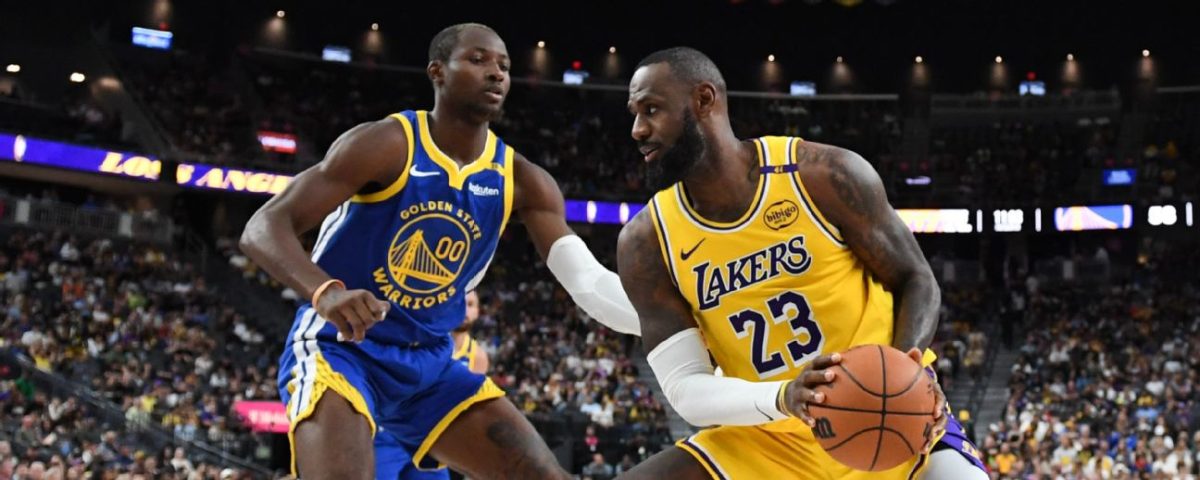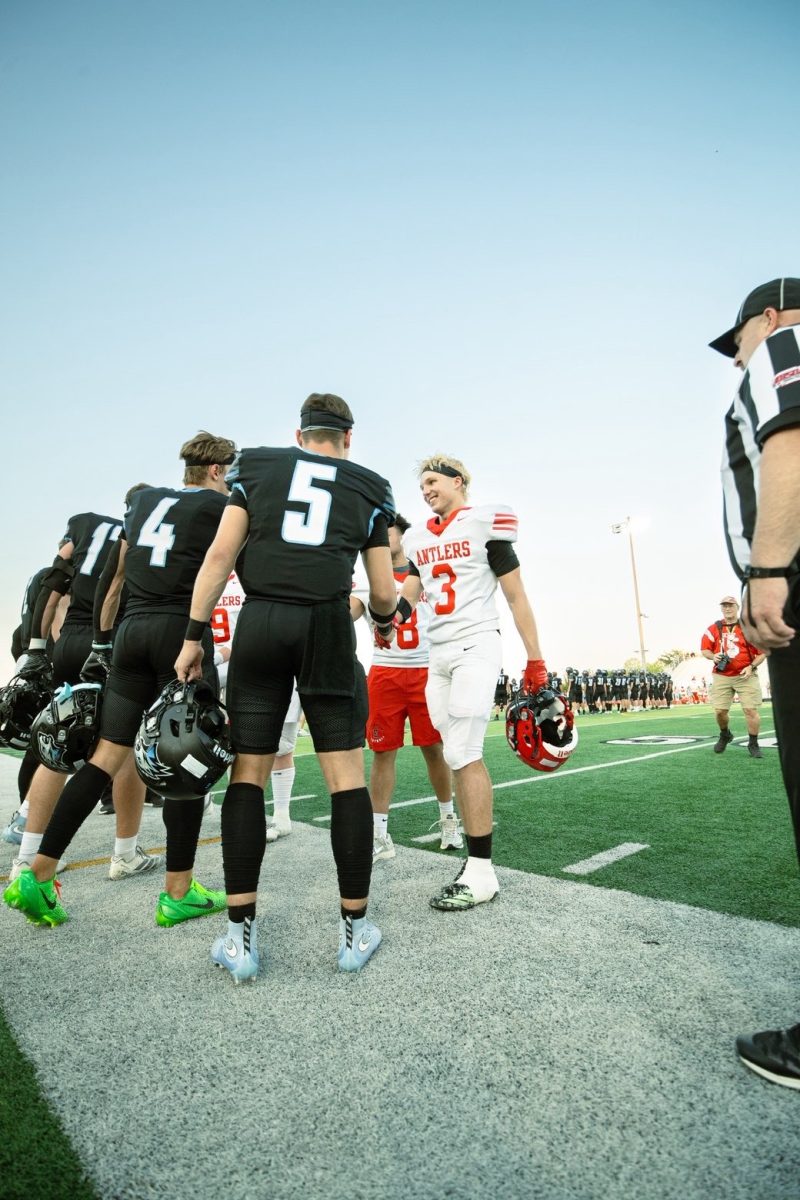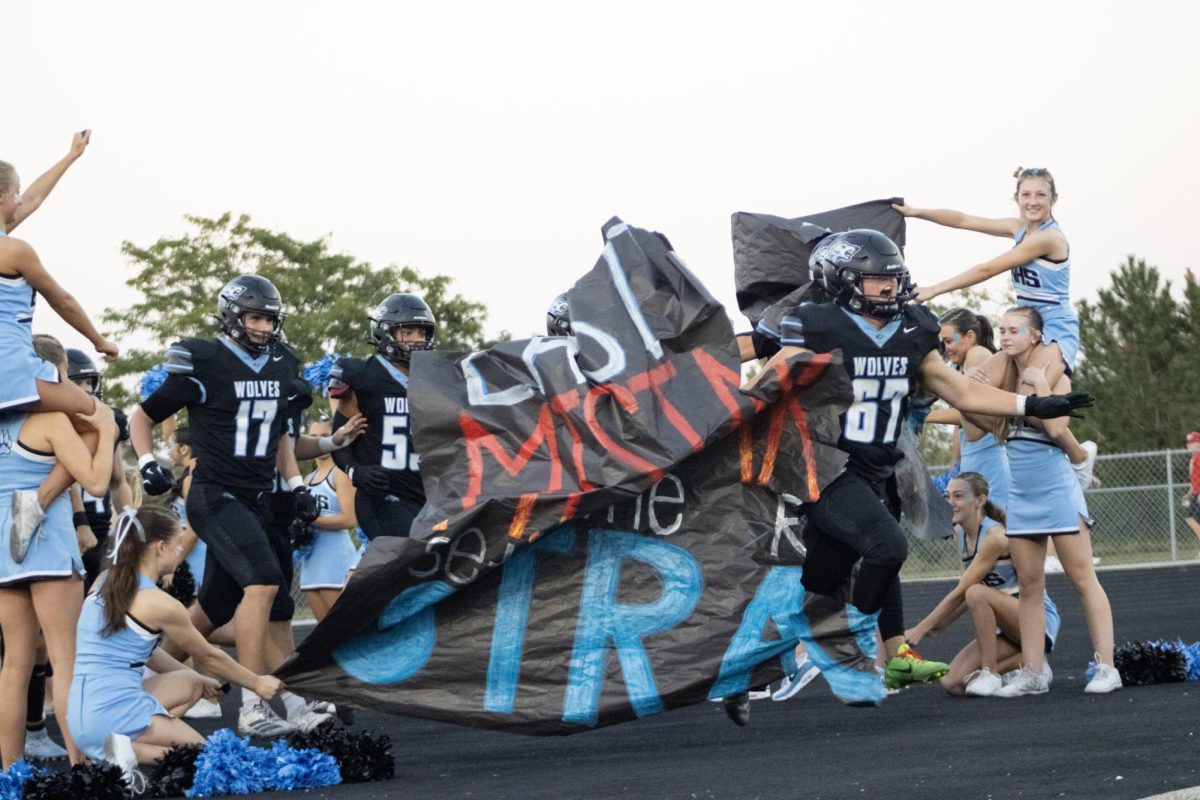It goes without saying that most families share a competitive factor in terms of athletics. Whether it’s push-up competitions in the living room or running a 5k together, these competitive relationships can positively and negatively affect athletes.
Commonly, a relationship with an experienced athlete can help build and expand one’s skills, which is why it’s not rare to see a pro athlete’s child also go pro. According to the Wall Street Journal, 48.8% of professional athletes are related to another pro. But, mentally, how does it affect the young adults’ who grow up with a professional athlete in their life?
“Growing up with athletes around me really got me into sports and competing,” junior Ian Christo said.
Junior Ian Christo’s family has a history of athleticism. His father played quarterback at UNL, while his brother plays baseball at UNL. Christo is a starting linebacker on the football team and an infielder, outfielder, and pitcher on the baseball team.
Following in the athletic footsteps of both his brother and father, Christo has recieved a lot of tips which has benefited him a lot in his athletic career.
“They offer the best first-hand experience and advice,” Christo said.
Senior volleyball player Hayden Booth’s mom was the head coach of the Creighton Bluejays until 2024, and she is now the president of business operations for the LOVB (League One Volleyball) professional league. Her sister, Reese Booth (grad 24′) played at Elkhorn North before going to UNI to continue her career in volleyball.
In an interview, Hayden said, “It’s helped having her [coach Booth] on the sideline, because she gives me tips on setting.”
Coach Booth has greatly helped Elkhorn North’s volleyball team. She has attended games and helped coach from the sideline. Also, her sister has provided guidance and been a strong example athletically.
“She [Reese] helps me push myself and have a standard to look up to,” Hayden said.
Hayden says she hasn’t experienced any extra pressure from her sister, instead she has made use of her success to push herself. Booth is the captain and the main setter and has become a really strong player and leader for the volleyball team.
Although it’s usually seen as advantageous to have a professional athlete as a family member, it can also cause stress.
Having high expectations to live up to can lead to a tremendous amount of pressure that could affect an athlete negatively. According to McLean, up to 35% of athletes report experiencing mental health issues with the most common reason being pressure. Most of the time this is caused by a parent in the athlete’s life. There’s a fine line between pushing a child to be the best they can and appointing a fear of failure.
Quarterback for the University of Texas Longhorns, Arch Manning, has experienced a situation that falls within these lines. Manning is the nephew of former Hall of Fame quarterbacks, Peyton and Eli Manning, and has endured a tremendous amount of pressure. Coming into the 2025 college football season Manning was a favorite to win the Heisman and expected to lead Texas to the national championship as only a sophomore. Only a few games into the season, Manning has underperformed, and it is clear the outside pressure has got to him.
Manning said in a post-game interview with CBS, “I’ve got to play better. It’s not good enough.”
High expectations and mounted pressure on the young and inexperienced quarterback has negatively impacted his mental state. It’s unclear how much Peyton and Eli have coached and impacted his game, but it is clear how much the media has influenced his confidence.
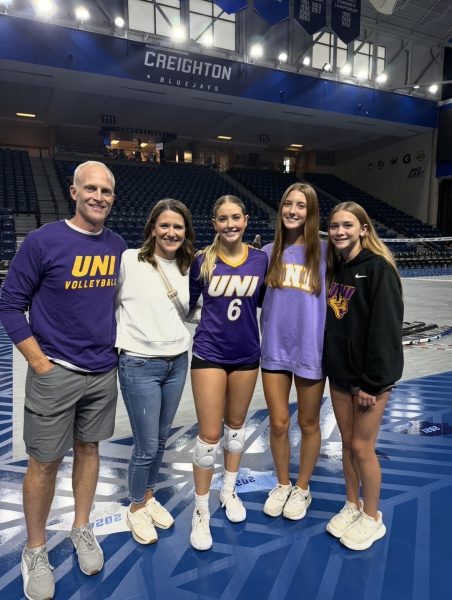
According to Baylor College of Medicine, around one third of children claim they have experienced critical behavior or unrealistic expectations from their parents towards their athletics. There is a tremendous amount of anxiety, depression, and burnout found in young athletes which expresses the importance of a healthy relationship between children and their parents through athletics, but it does not show the different experiences some may have with athletically successful parents.
The Ball Brothers, Lonzo, LaMelo, and LiAngelo, who are known for their basketball skill, have videos all over the internet about their relationship with each other and their dad. Their dad, LaVar, played a huge role in their growth as athletes as he pushed them to be competitive with each other and work for what they wanted. As Lonzo arose as one of the best players in his class, the younger brothers followed the spotlight of their brother which helped them push each other to become such good athletes. LaVar’s pushing was seen as a success as Lonzo was drafted first overall in the 2017 NBA draft and LaMelo was drafted third overall in the 2020 NBA Draft. LiAngelo had played in the NBA G-League for a bit before he decided to quit and pursue a musical career.
A similar occurrence is proven by the success of Steph and Seth Curry. Their father, Dell Curry, played in the NBA from 1986 to 2002 and retired as the all-time leader in points for the Charlotte Hornets. Steph and Seth grew up with their dad playing in the league and found an immediate love for the game. As a family they competed and helped each other grow their skills. Both sons would grow up to play in the NBA, with Steph being considered one of the best players of all time. Seth, who has been a role player for several NBA teams, has still had an incredible career yet still outshined by his brother’s success.
There are advantages and disadvantages that come from having athletically experienced family members. A lot is unknown about the relationships between many of these athletes, but it is clear how they have been impacted and how they have taken advantage of their opportunities to become better athletes.



